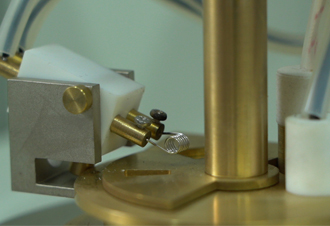 English
English



-
 Afrikaans
Afrikaans -
 Albanian
Albanian -
 Amharic
Amharic -
 Arabic
Arabic -
 Armenian
Armenian -
 Azerbaijani
Azerbaijani -
 Basque
Basque -
 Belarusian
Belarusian -
 Bengali
Bengali -
 Bosnian
Bosnian -
 Bulgarian
Bulgarian -
 Catalan
Catalan -
 Cebuano
Cebuano -
 China
China -
 China (Taiwan)
China (Taiwan) -
 Corsican
Corsican -
 Croatian
Croatian -
 Czech
Czech -
 Danish
Danish -
 Dutch
Dutch -
 English
English -
 Esperanto
Esperanto -
 Estonian
Estonian -
 Finnish
Finnish -
 French
French -
 Frisian
Frisian -
 Galician
Galician -
 Georgian
Georgian -
 German
German -
 Greek
Greek -
 Gujarati
Gujarati -
 Haitian Creole
Haitian Creole -
 hausa
hausa -
 hawaiian
hawaiian -
 Hebrew
Hebrew -
 Hindi
Hindi -
 Miao
Miao -
 Hungarian
Hungarian -
 Icelandic
Icelandic -
 igbo
igbo -
 Indonesian
Indonesian -
 irish
irish -
 Italian
Italian -
 Japanese
Japanese -
 Javanese
Javanese -
 Kannada
Kannada -
 kazakh
kazakh -
 Khmer
Khmer -
 Rwandese
Rwandese -
 Korean
Korean -
 Kurdish
Kurdish -
 Kyrgyz
Kyrgyz -
 Lao
Lao -
 Latin
Latin -
 Latvian
Latvian -
 Lithuanian
Lithuanian -
 Luxembourgish
Luxembourgish -
 Macedonian
Macedonian -
 Malgashi
Malgashi -
 Malay
Malay -
 Malayalam
Malayalam -
 Maltese
Maltese -
 Maori
Maori -
 Marathi
Marathi -
 Mongolian
Mongolian -
 Myanmar
Myanmar -
 Nepali
Nepali -
 Norwegian
Norwegian -
 Norwegian
Norwegian -
 Occitan
Occitan -
 Pashto
Pashto -
 Persian
Persian -
 Polish
Polish -
 Portuguese
Portuguese -
 Punjabi
Punjabi -
 Romanian
Romanian -
 Russian
Russian -
 Samoan
Samoan -
 Scottish Gaelic
Scottish Gaelic -
 Serbian
Serbian -
 Sesotho
Sesotho -
 Shona
Shona -
 Sindhi
Sindhi -
 Sinhala
Sinhala -
 Slovak
Slovak -
 Slovenian
Slovenian -
 Somali
Somali -
 Spanish
Spanish -
 Sundanese
Sundanese -
 Swahili
Swahili -
 Swedish
Swedish -
 Tagalog
Tagalog -
 Tajik
Tajik -
 Tamil
Tamil -
 Tatar
Tatar -
 Telugu
Telugu -
 Thai
Thai -
 Turkish
Turkish -
 Turkmen
Turkmen -
 Ukrainian
Ukrainian -
 Urdu
Urdu -
 Uighur
Uighur -
 Uzbek
Uzbek -
 Vietnamese
Vietnamese -
 Welsh
Welsh -
 Bantu
Bantu -
 Yiddish
Yiddish -
 Yoruba
Yoruba -
 Zulu
Zulu
dc resistance tester
Understanding DC Resistance Testers A Comprehensive Overview
In the world of electronics and electrical engineering, measuring the resistance of various components is crucial for ensuring the functionality and reliability of circuits. One valuable tool for this purpose is the DC resistance tester. This device serves as an essential instrument for engineers, technicians, and hobbyists alike, facilitating the evaluation of materials and connections in a wide range of applications.
What is a DC Resistance Tester?
A DC resistance tester is an electronic device used to measure the resistance of a component or a circuit to direct current (DC). It applies a known DC voltage across the component and measures the resulting current flow. By using Ohm’s law (V = IR), where V is voltage, I is current, and R is resistance, the device can accurately calculate the resistance value.
Key Features and Functions
1. Measurement Range DC resistance testers come with varying measurement ranges to accommodate different resistance levels. High-end models can measure low resistances in micro-ohms, while others might be suitable for measuring resistances in the kilo-ohm range.
2. Display Most testers feature a digital display that provides clear, real-time readings of resistance values. Some advanced models may include backlighting for ease of reading in low-light conditions.
3. Automatic Range Selection Many modern testers are equipped with automatic range selection, allowing users to measure resistance without needing to manually adjust settings. This feature simplifies the measurement process and decreases the likelihood of user error.
4. Data Hold Functionality This feature allows users to capture and hold a reading on the display, making it easier to record measurements for later analysis.
5. Battery Powered Designed for portability, DC resistance testers are typically battery-operated, making them convenient for both fieldwork and in-lab testing.
Applications
DC resistance testers are invaluable in various sectors
dc resistance tester

- Electrical Engineering Engineers use these devices to check the integrity of electrical connections, ensuring that there are no significant resistive losses that could affect performance.
- Quality Control In manufacturing, testing the resistance of products or components helps in maintaining quality standards and ensuring reliability.
- Maintenance Technicians often use testers to assess motors, transformers, and other equipment to identify potential failures before they escalate into costly repairs.
- Research and Development In R&D settings, precise resistance measurements enable the testing of new materials and components, fostering innovation and development in electronics.
Choosing the Right DC Resistance Tester
When selecting a DC resistance tester, several factors should be considered
- Accuracy Look for a model that provides high accuracy specifications, particularly if the application requires precise measurements.
- Durability If the tester will be used in harsh environments, opt for a robust design that can withstand physical stress and exposure to elements.
- User-Friendly Interface A tester with an intuitive interface will allow both experienced professionals and newcomers to operate it more efficiently.
- Price While there are various models available, it’s advisable to balance features and quality with your budget. Investing in a reliable, accurate tester will yield better results in the long run.
Conclusion
In conclusion, DC resistance testers play a vital role in the maintenance and development of electrical systems. Their ability to provide precise resistance measurements contributes to the reliability and efficiency of electronic components and circuits. With various available models, professionals can select a tester that fits their specific needs and applications. Investing in a quality DC resistance tester is an essential step for anyone serious about working within the field of electronics.
-
Exploring the Main Types of Industrial Endoscopes and Their Applications Across IndustriesNewsJul.04,2025
-
Testing Equipment Industry Sees Major Advancements in 2025: Smart & Precision Technologies Lead the WayNewsJun.06,2025
-
Applications of Direct Current Generators in Renewable Energy SystemsNewsJun.05,2025
-
Hipot Tester Calibration and Accuracy GuidelinesNewsJun.05,2025
-
Digital Circuit Breaker Analyzer Features and BenefitsNewsJun.05,2025
-
Benefits of Real-Time Power Quality Monitoring Devices for Industrial EfficiencyNewsJun.05,2025



